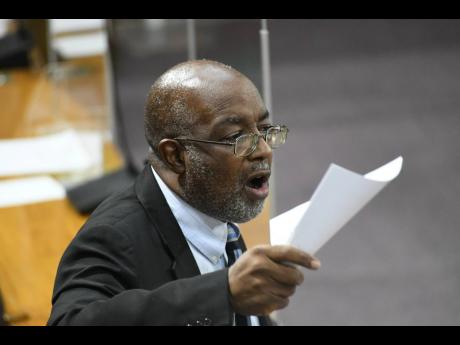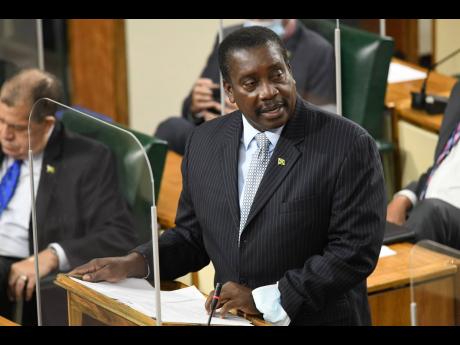Traffic law amended despite Opposition protest
Lawmakers tussle over speed, motive amid fine foul-up
Amendments to the Road Traffic (Amendment) Act 2021 to increase its penalties were passed in the both Houses of Parliament on Friday despite protest from the Opposition, which called for speedy implementation of the 2018 law that they say will help to rid the streets of rogue transport operators and reduce traffic violations.
The move to hastily push through the amendments in the House of Representatives and the Senate was precipitated by Wednesday’s Supreme Court injunction barring the police from issuing traffic tickets in excess of rates charged up to 2006.
This comes in the wake of a class-action lawsuit filed against the attorney general and the commissioner of police by software engineer Maurice Housen, who is representing other drivers and motor vehicle owners who were issued traffic tickets and paid fines or fixed penalties in excess of the measures approved up to 2006.
Housen is contending that fixed penalties for road traffic offences under the 1938 Road Traffic Act have not been increased by the Parliament or the minister of transport in accordance with Section 116 of the act.
The injunction order, which is to remain in force until the trial in 2023, is likely to impact the Government’s revenue projections of approximately $225.6 million in traffic fines.
However, the Government, in a move to correct an apparent legislative error, caused Parliament to convene an emergency sitting of the Lower House in which Transport Minister Robert Montague pointed out that the amended act would address the penalties despite the injunction.
“By way of background, Section 116 of the Road Traffic Act 1938 provides that the minister may, by order, amend the appendix to make changes to fix penalties,” he said.
Montague further said that while the injunction granted by the Supreme Court restrained the Government from imposing certain penalties, the new bill sought to amend the Road Traffic Act to provide for an increase in the fixed penalties.
During that sitting, opposition members, led by Opposition Leader Mark Golding, described the speed at which the Government moved to pass the bill as hasty and “chaka-chaka”.
Golding also questioned why the Government had taken a U-turn from its original plan for the meeting, which was to pass a bill titled Road Traffic Amendment Validation and Indemnity Act.
“A fundamental change took place in the thinking of the Government as to what was to be done today, what the legislation today would do. It just shows to me that Government has been scurrying around in a rather confused way, trying to think about how to address this and calling us here on Friday to deal with this thing in a hurried manner,” Golding said.
They also questioned whether the urgency to have the bill pass was not a disguised attempt by the Government to secure revenue from road traffic breaches.
“I feel that we are now saying to Jamaica we are more concerned about revenue than we are concerned about other aspects of road safety,” Manchester North Western Member of Parliament Mikael Phillips said.
“We should not send the signal that we did something wrong because of the urgency of revenue.”
Opposition senators also expressed dissatisfaction with the Government’s handling of the situation.
Senator Lambert Brown said there was no urgency and that passing the bill was a backward move that sought to undermine the Road Traffic Act of 2018.
“By not promulgating the 2018 legislation, by failing to put that law in place that hit those breakers of the law seriously, the Government has allowed them to get away and to come here today to say $4,000 for breaking a red light. What is the message that is being sent?” he asked.
Meanwhile, National Security Minister Dr Horace Chang said the Road Traffic Act and its accompanying penalties were crucial to public order.


